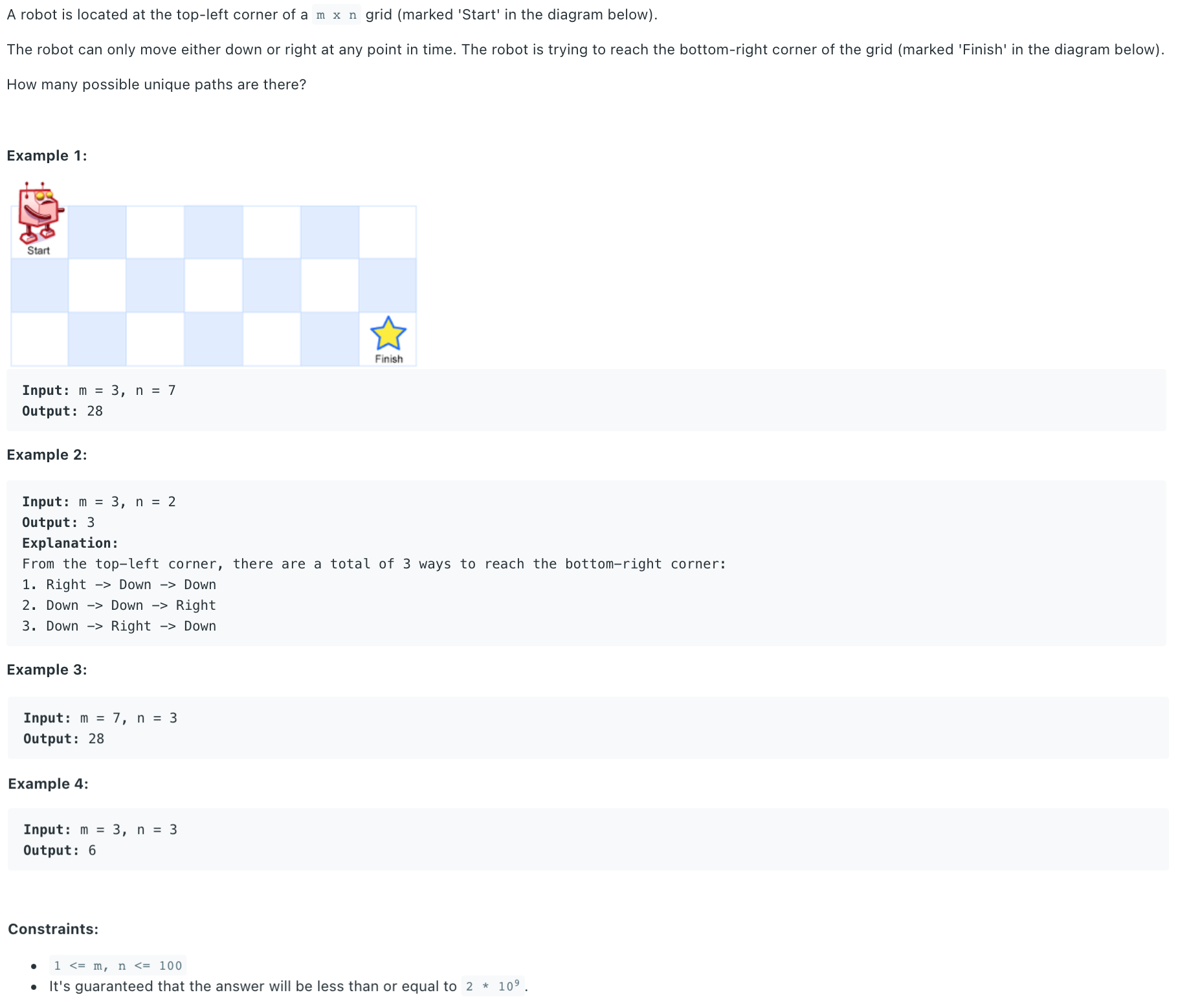Unique Paths
franklinqin0 ArrayDP

# Solution
We could exchange m and n s.t. .
# DP
The state transition is:
The base cases are dp[0][j] and dp[i][0], which have by default only path.
# Squared Space
Complexity
time:
space:
def uniquePaths(self, m: int, n: int) -> int:
dp = [[0 for _ in range(n)] for _ in range(m)]
for j in range(n):
dp[0][j] = 1
for i in range(1, m):
dp[i][0] = 1
for i in range(1, m):
for j in range(1, n):
dp[i][j] = dp[i-1][j] + dp[i][j-1]
return dp[-1][-1]
1
2
3
4
5
6
7
8
9
10
2
3
4
5
6
7
8
9
10
# Linear Space
Complexity
time:
space:
def uniquePaths(self, m: int, n: int) -> int:
if m > n: m, n = n, m
dp = [[0 for _ in range(2)] for _ in range(m)]
for i in range(m):
dp[i][0] = 1
dp[0][1] = 1
for j in range(1, n):
for i in range(1, m):
dp[i][j%2] = dp[i-1][j%2] + dp[i][(j-1)%2]
return dp[-1][(n-1)%2]
1
2
3
4
5
6
7
8
9
10
2
3
4
5
6
7
8
9
10
# Math
There are in total moves, in which moves are going down and moves are going right. The number of unique paths is thus equal to choose .
Complexity
time:
space:
# 1-liner Cheating
from math import comb
def uniquePaths(self, m: int, n: int) -> int:
return comb(m+n-2, m-1)
1
2
3
2
3
# Calculate by Formula
from math import comb
def uniquePaths(self, m: int, n: int) -> int:
if m > n: m, n = n, m
res = 1
j = n
for i in range(1, m):
res *= j / i
j += 1
return round(res)
1
2
3
4
5
6
7
8
9
2
3
4
5
6
7
8
9